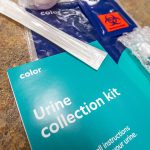Julie Donohue, Ph.D., associate professor of health policy and management at the University of Pittsburgh Graduate School of Public Health, has been working with the state medicate agency to look at the prevalence of opioid overdose in the Pennsylvania Medicaid population. Her pilot grant focuses on lock-in programs that determine the best criteria to identify people who are at risk for abusing prescription opioids, and limit them to filling prescriptions at one pharmacy to prevent “doctor shopping.”
Western Pennsylvania is in the midst of a drug overdose epidemic, prompting Pitt Public Health to create a pilot grant project that funds several studies exploring different aspects of the problem.
This post is part of a blog series entitled “The Opioid Epidemic,” a collaboration between UPMC and the University of Pittsburgh Schools of the Health Sciences highlighting the doctors, researchers and nurses making significant efforts to reduce diversion and misuse of prescription opioids. For more information about the series or resources to help with drug addiction, click here.








